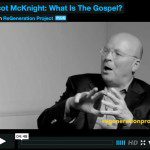I look forward to attending ETS and SBL 2015 next month! I hope to connect with many of you. For now, I’ll let you know where you can find me. I’ll be presenting … Tuesday, November 17th 2:50–3:30 “Have Theologians No Sense of Shame?: How the Bible Reconciles Objective and Subjective Shame” Here is my abstract: If it is true that theology should shape Christian ministry and practice, then the church is ill equipped to deal with the subject of... Read more

















